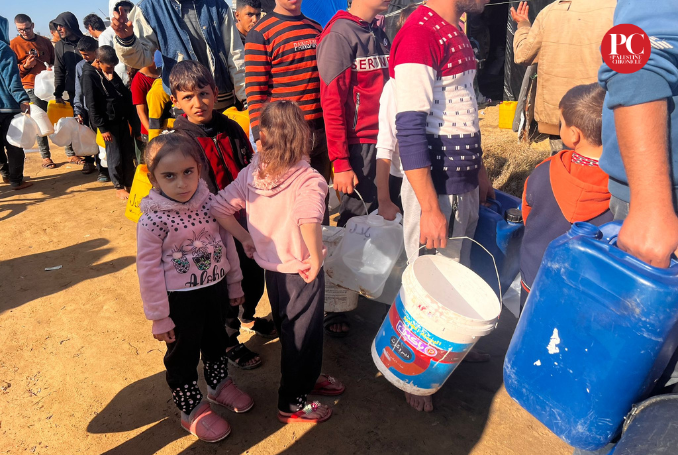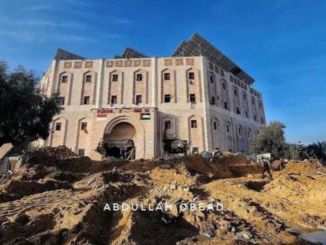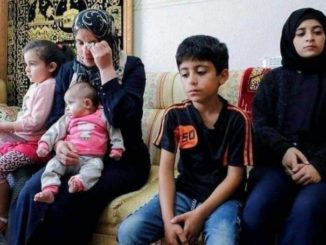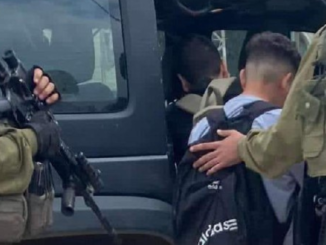
Displaced communities “live in overcrowded shelters and lack cleaning supplies, hygiene kits and diapers, as well as clothes and infant formula for babies.” Stephane Dujarric
Nearly 90 percent of coordinated humanitarian aid movements between northern and southern Gaza have been either denied or impeded this month by Israel, according to the United Nations.
“Humanitarian aid movements in Gaza continue to face significant access constraints,” UN spokesperson Stephane Dujarric told a press briefing on Friday. “Nearly 90 percent of coordinated humanitarian response movements between northern and southern Gaza so far in September have been either denied or impeded.”
He said displaced Palestinians continue to live “in abysmal conditions,” which are expected to further deteriorate in the forthcoming cold and rainy winter weather.
“That would be the second winter that civilians in Gaza have to face” in those conditions, Dujarric noted.
Assessments recently conducted in two collective shelters in Deir al Balah and Khan Younis found that at both sites, displaced communities “live in overcrowded shelters and lack cleaning supplies, hygiene kits and diapers, as well as clothes and infant formula for babies.”
West Bank
He also highlighted the situation in the occupied West Bank, saying that the number of “internal movement obstacles” deployed by Israeli forces has increased by more than 20 percent since June of last year.
“The cumulative impact of obstruction to movement has been devastating, further entrenching the fragmentation in the West Bank, disrupting access to livelihoods and services for thousands of Palestinians, which is aggravating the already difficult conditions in which many live,” Dujarric emphasized.
Israeli occupation forces target journalist and emergency medical workers with teargas during the weekly anti-occupation protest in the town of Beita, the occupied West Bank. pic.twitter.com/tfRx9vM4Lq
— Quds News Network (@QudsNen) September 27, 2024
In just one week — between 17 and 23 September — 11 Palestinians were killed, including two children, he said, adding that these “included exchanges of fire and an airstrike.”
Meanwhile, health facilities in the West Bank are also impacted by Israel’s actions.
Citing the WHO (World Health Organization), Dujarric said that from October 7 of last year to July 30 of this year, 527 attacks — including obstruction of access, use of force, detention and militarized searches — were reported on healthcare facilities in the region.
“These have impacted 54 healthcare facilities, including 20 mobile clinics, in addition to 365 ambulances,” said the spokesperson.
Lebanon
On the Lebanese front, Dujarric said the “recent escalation in the country is nothing short of catastrophic, with the surge in violence extending to previously unaffected areas.”
This has led to “the widespread destruction” of homes and infrastructure across Lebanon.
He pointed out that in less than a week, “at least 700 human lives have been lost, thousands have been injured, and nearly 120,000 people have been displaced, with these numbers continuing to rise as we speak,” due to Israel’s attacks on the country.
He said the main needs of those affected “include safe shelters, core relief items, healthcare, cash assistance and protection services.”
In total, since October of 2023, more than 1,500 civilians have been killed in Lebanon and 200,000 people have been forced to flee their homes, according to Dujarric.
(The Palestine Chronicle)









Defund Zionism now!